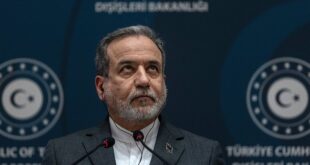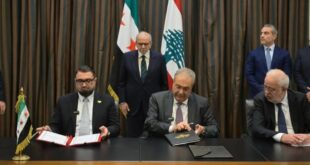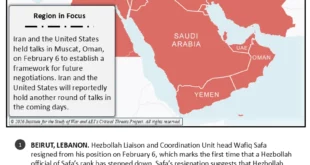 ISTANBUL (Reuters) – The Roman Catholic Church hopes a year dedicated to Saint Paul, born two millennia ago in Tarsus in today’s southern Turkey, will bring signs of more religious tolerance in the mostly Muslim but secularist country.
ISTANBUL (Reuters) – The Roman Catholic Church hopes a year dedicated to Saint Paul, born two millennia ago in Tarsus in today’s southern Turkey, will bring signs of more religious tolerance in the mostly Muslim but secularist country.
Pope Benedict proclaimed the “Pauline Year”, 12 months of events starting on June 29, to honor the great evangelizer of the early Church martyred in the year 64 under the Emperor Nero.
The event has taken on a contemporary twist in Turkey, where the state keeps tight control on religion, and figured in a German debate between Muslims aiming to build mosques there and bishops calling for more churches in Muslim countries.
The main issue in Turkey is a Catholic request for a former church, which was confiscated by the state in 1943 and is now a museum, to be turned back into a house of worship for pilgrims coming to Tarsus during the Pauline Year and afterwards.
“We think this could be a good sign of religious freedom in Turkey,” Bishop Luigi Padovese, apostolic administrator for the Anatolia, told Reuters. “We have big hopes and our hopes have a firm foundation.”
Local officials have cooperated in planning for the hundreds of thousands of pilgrims expected during the year and Prime Minister Tayyip Erdogan might attend an inaugural ceremony in Tarsus on June 21, he said.
A decision to turn the museum over to the Catholics, who say they would allow all Christian denominations to use it, would be a positive step in a country where cautious efforts at expanding religious rights in recent years seem to have been put on hold.
Erdogan, whose AK Party has its roots in political Islam, raised hopes in recent years among Turkey’s 100,000-strong Christian community by stressing greater rights for religion as part of a liberalization needed to join the European Union.
But a bid to scrap one constraint — a ban on Islamic headscarves at universities — has landed him in a legal clash with the secularist elite. By late June, the Supreme Court may have banned him from belonging to a political party.
CROSS AND ICONS
The only church in Tarsus is a simple medieval building with bare walls and no cross. Confiscated in 1943, it was used by the army and later as a museum. “There’s only the building, with nothing special in it. Not much of a museum,” Padovese said.
Local officials have long allowed priests to say Mass in the Tarsus church if they remove the cross and all other religious items immediately afterwards. They recently stopped charging the museum entrance fee, something the worshippers resented.
But turning it back into a church would mean it could have a cross and icons whenever pilgrims visit it, Padovese said. “This empty building is not a church,” he added. “Imagine how it feels to pray in a museum with no cross.”
Tarsus Mayor Burhanettin Kocamaz said he had also received a request to build a church there. “We do not support one project over another, as we don’t have the authority to decide,” he said. “We will apply whichever decision the government makes.”
Erdogan’s office did not answer requests for a comment on how the government in Ankara saw the issue in Tarsus.
Catholic bishops in Germany have taken up the Tarsus church issue as part of a larger effort by the Vatican to have Muslim countries allow more rights for Christians in parallel to the freedom Muslims have to build mosques in western states.
A delegation of bishops will visit the city in September and many dioceses there are organizing pilgrimages, Padovese said.
Cologne Cardinal Joachim Meisner, who has criticized plans by Turks in Germany to build a large mosque there, has written to Erdogan to ask his help with the Tarsus project. He has also mentioned the possibility of building a church in the city.
Meisner, a friend of Pope Benedict, has said a functioning church in Tarsus would be “a strong sign of understanding and would help balance things out here in Cologne.” He has denied this was meant as an ultimatum to Ankara.
 Eurasia Press & News
Eurasia Press & News


